The Country Girl (1954)
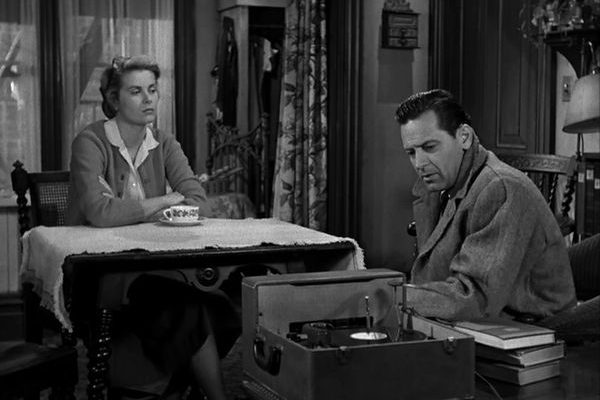
Toronto Film Society presented The Country Girl (1954) on Sunday, November 22, 1981 in a double bill with Sabrina as part of the Season 34 Sunday Afternoon Film Buffs Series, Programme 4.
Production Company: Paramount. Producer: William Perlberg. Director: George Seaton. Screenplay: George Seaton, from the play by Clifford Odets. Directo fo Photography: John F. Warren. Art Direction: Hal Pereira and Roland Anderson. Set Decoration: Sam Comer and Grace Gregory. Assistant Director: Francisco Day. Editor: Ellsworth Hoagland. Costumes: Edith Head. Music: Victor Young. Songs: Ira Gershwin and Harold Arlen.
Cast: Bing Crosby (Frank Elgin), Grace Kelly (Georgie Elgin), William Holden (Bernie Dodd), Anthony Ross (Phil Cook), Gene Reynolds (Larry), Jacqueline Fontaine (Singer-Actress), Eddie Ryder (Ed), Robert Kent (Paul Unger), John W. Reynolds (Henry Johnson), Ida Moore (First Woman), Frank Scanell (Bartender), Ruth Rickaby (Second Woman), Hal K. Dawson, Howard Joslin, Richard Keene, Jack Kenney (Actors), Charles Tannen (Photographer).
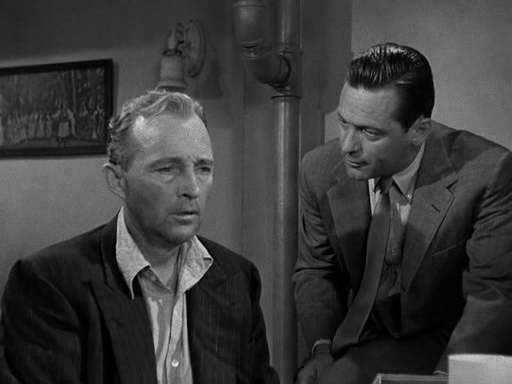
Those persons who went to see The Country Girl in 1954 expecting a rural romance must have gotten quite a surprise upon seeing a drama set on New York’s Great White Way. It was part of the then-current cycle of films with Broadway settings (All About Eve, Forever Female). William Holden was fresh from his Oscar-winning triumph the previous year in Billy Wilder’s Stalag 17, while Grace Kelly had demonstrated her skill in Hitchcock’s Rear Window and Dial M for Murder. Bing Crosby had just finished White Christmas, in a characteristic singing part; nevertheless, today’s film contains probably the finest performance of Crosby’s long career, a superbly enacted and deeply felt portrayal.
Crosby’s character is that of a stage performer on the skids, a man trying to drown personal demons in the bottle. Grace Kelly is his dowdy, embittered and forbidding spouse. Enter Broadway director Holden, trying to help Crosby make a comeback. At first thinking that Miss Kelly is responsible for her husband’s morale and career problems, he subsequently learns that Crosby has been blaming himself for the death of their son. Miss Kelly, it develops, has patiently stood by him, humoured his moods, tolerated his drinking. Son the mutual antagonism between Kelly and Holden has turned to love.
Both Holden and Kelly fitted their roles like gloves–Holden with his slightly hesitant, caustic, self-assured, and cantankerous manner, Kelly with the ice-on-the-surface-fire-underneath persona she is best remembered for. Notwithstanding the fine performances of these two, though, in the end it is Bing Crosby’s picture, submerging the image of the light-hearted crooner and portraying a complex, tormented man on the edge of the precipice. A pity that this excellent actor was typecast in musicals and comedies. A pity, too, that Grace Kelly did not ignore the complaints of her subjects in Monaco in 1962 and accept Hitchock’s offer of the role in Marnie. One wonders if she doesn’t occasionally look at her Best Actress Oscar for The Country Girl a trifle wistfully.
Notes by John Thompson

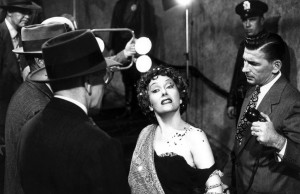
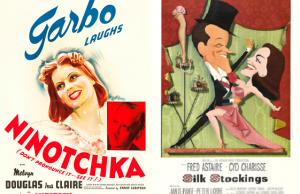
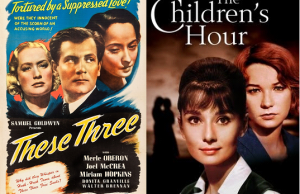






Leave a Reply